In Nigeria, the conversation surrounding autism and other neurodivergent conditions remains too quiet. Cultural misunderstandings, stigma, and a lack of resources have all contributed to the difficulty of recognizing, diagnosing, and supporting individuals with autism spectrum disorder (ASD) and other neurodivergent conditions.
But things are starting to shift. Integrating neurodivergence-related topics into the health science curriculum in Nigerian universities is an important step toward creating a more informed, inclusive healthcare system.
By raising awareness, improving early diagnosis, and supporting intervention strategies, we can pave the way for better outcomes for individuals with autism and related conditions. These and more are what we are covering in this article. To learn more, make sure to check out our website Matermental.com.
The State of Autism Awareness in Nigeria
Autism is widely misunderstood in many parts of Nigeria. For years, families have struggled to understand why their children behave differently, often facing frustration when seeking help.
The lack of awareness about autism and other neurodivergent conditions means that many individuals go undiagnosed or are misdiagnosed, leading to delays in receiving essential support. As a result, children with autism often struggle academically, socially, and emotionally, without the interventions they need to thrive.
Some of Nigeria’s healthcare professionals, from doctors to nurses, often have limited exposure to autism-related conditions in their formal education. As a result, many patients are either left undiagnosed or receive incorrect diagnoses, leading to missed opportunities for early intervention.
In one conversation on Reddit, a Nigerian said as fellow: “If you’re a kid in Nigeria with ADHD, you’re zoned out in class they will just constantly criticize you until you get your act right and learn to mask. I suspect a lot of males in my family have autism or ADHD. Maybe both, but it’s all masked because they grew up in Nigeria where it “doesn’t exist”. I have ADHD, I take things slow to properly process and I am constantly in my own head, scatterbrained. The comments stick but they don’t affect me.”
The stigma surrounding autism and neurodivergence only exacerbates the situation. Many families still view autism as a curse or a form of punishment, believing that children with autism are somehow “possessed” or “cursed.”
This belief often stems from a lack of understanding and an absence of accurate information. By integrating neurodivergence-related topics into the health science curriculum, we can begin to tackle these misconceptions, creating a more informed and compassionate society.
The Power of Early Diagnosis and Intervention
The importance of early diagnosis and intervention for autism cannot be overstated. Research has shown that early interventions can have a profound impact on the development of children with autism, improving communication skills, social abilities, and adaptive behaviors.
In countries where early diagnosis is prioritized, children with autism are given a better chance to succeed academically and socially, and they experience higher quality of life as adults.
In Nigeria, however, the delay in diagnosis is a common problem. Many children are not diagnosed until they are well into their school years, and by then, they may have already missed crucial developmental milestones.
According to autism around the world, “the situation in Nigeria seems to hark back to pre-1943 America when children with autism were thought to be schizophrenic or mentally retarded”.
This delay can have lasting consequences, including academic difficulties, social isolation, and emotional distress. For families who are not aware of autism, these struggles are often misunderstood or misattributed to behavioral problems, further complicating the situation.
A study by the National Library of Medicine found that children who received an autism diagnosis by age three had better long-term outcomes in terms of academic achievement, social relationships, and employment opportunities as adults.
Conversely, those who were diagnosed later had a more difficult time overcoming the barriers they faced as children. This highlights the importance of early diagnosis and intervention, which can dramatically improve the quality of life for individuals with autism.
Benefits of Integrating Neurodivergence Education into the Curriculum
Integrating neurodivergence education into the health science curriculum in Nigeria would have far-reaching benefits. First and foremost, it would equip future healthcare professionals with the knowledge and tools they need to identify autism and related conditions early.
Medical students, psychologists, nurses, and other healthcare professionals would be able to recognize the signs of autism and refer individuals to the appropriate specialists for further evaluation.
Moreover, incorporating neurodivergence-related topics into the curriculum would help dismantle the stigma surrounding autism. It is essential that healthcare workers not only learn to diagnose and treat autism but also understand the value of neurodiversity.
“A lot of scientific advances have been made on neurodevelopmental disorders in children. Inclusion in educational curriculum is definitely a good way to increase the awareness and better identification by physicians who may not be specialists in the fields of psychiatry or paediatrics“- Dr Oluwasikemi Alalade, MBBS, MPH, FWACP (Psych), Consultant Psychiatrist. Federal Neuro-Psychiatric Hospial, Nigeria
Neurodivergent individuals have unique strengths and perspectives that should be celebrated rather than stigmatized. A curriculum that includes neurodivergence-related topics would encourage future healthcare professionals to approach autism with empathy, respect, and understanding, helping to shift societal attitudes toward a more inclusive mindset.
But what could such a curriculum look like? For one, it would include topics such as:
- The concept of neurodiversity: Understanding that autism and other neurodivergent conditions are part of the natural variation of human development.
- The neurodevelopmental spectrum: Teaching students about the wide range of conditions that fall under the umbrella of neurodivergence, including autism, ADHD, and learning disabilities.
- Diagnostic methods and challenges: Educating students on the various diagnostic tools used to assess autism and the challenges that arise in identifying it, especially in low-resource settings.
- Intervention strategies: Introducing evidence-based interventions, such as Applied Behavior Analysis (ABA) and speech therapy, and teaching future professionals how to implement them.
- Support networks and family coping mechanisms: Recognizing the emotional toll autism can have on families and teaching students how to provide support for both the individual with autism and their loved ones.
Building Public Awareness through Education
The benefits of integrating neurodivergence education into the health science curriculum go beyond just training healthcare workers. See a publication by the University of Pittsburgh – Supporting Neurodiversity in Learning Environments.
Universities have the power to become hubs for public awareness campaigns that educate the broader Nigerian community about autism.
By offering outreach programs, public lectures, and community workshops, universities can help dispel the myths and stigma surrounding autism, while also encouraging families to seek early intervention for their children.
In addition, partnerships with government agencies and non-governmental organizations (NGOs) could amplify these efforts. For example, working with Nigeria’s Ministry of Health to promote autism awareness could ensure that the message reaches a larger audience.
NGOs focused on autism advocacy could help provide support to families who are navigating the healthcare system and seeking a diagnosis for their children.
Conclusion
The integration of neurodivergence education into Nigeria’s health science curriculum is not just a theoretical conversation—it is a necessary and urgent step to improving the lives of individuals with autism and other neurodivergent conditions.
By fostering early awareness, improving diagnosis, and implementing effective interventions, we can ensure that individuals with autism have the opportunity to live fulfilling lives.
It is time for Nigeria to break the silence on autism and neurodivergence. The future of thousands of children and adults depends on our collective effort to make this change.
References.
Alalade, O. (2025). Inclusion of Neurodivergent Related Topics in Health Sciences Curriculum.
Frasher. C.(2024). Supporting Neurodiversity in Learning Environments. University Center for Teaching and Learing. Available from : https://teaching.pitt.edu/resources/supporting-neurodiversity-in-learning-environments/.
Moulton. E, Barton M, Robins DL, Abrams DN, Fein D.(2016). Early Characteristics of Children with ASD Who Demonstrate Optimal Progress Between Age Two and Four. J Autism Dev Disord, Vol 46(6):2160-2173. doi: 10.1007/s10803-016-2745-1. PMID: 26895327; PMCID: PMC4860351.
Nwokolo, O.M.(2010). A psychologist’s Perspective on the Taboo of Autism in Nigeria. Available from : https://www.autismaroundtheglobe.org/story/a-psychologists-perspective-on-the-taboo-of-autism-in-nigeria/.


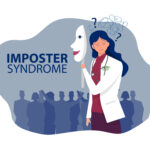




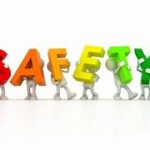
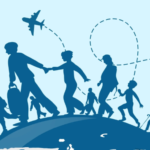




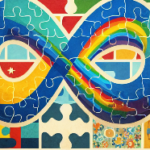
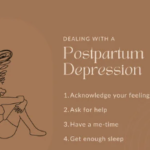




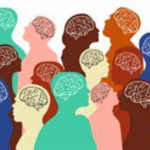
2 Responses
Fascinating study.
Love the depth of your analysis! While we’re sharing, Sprunki Retake is worth looking into.